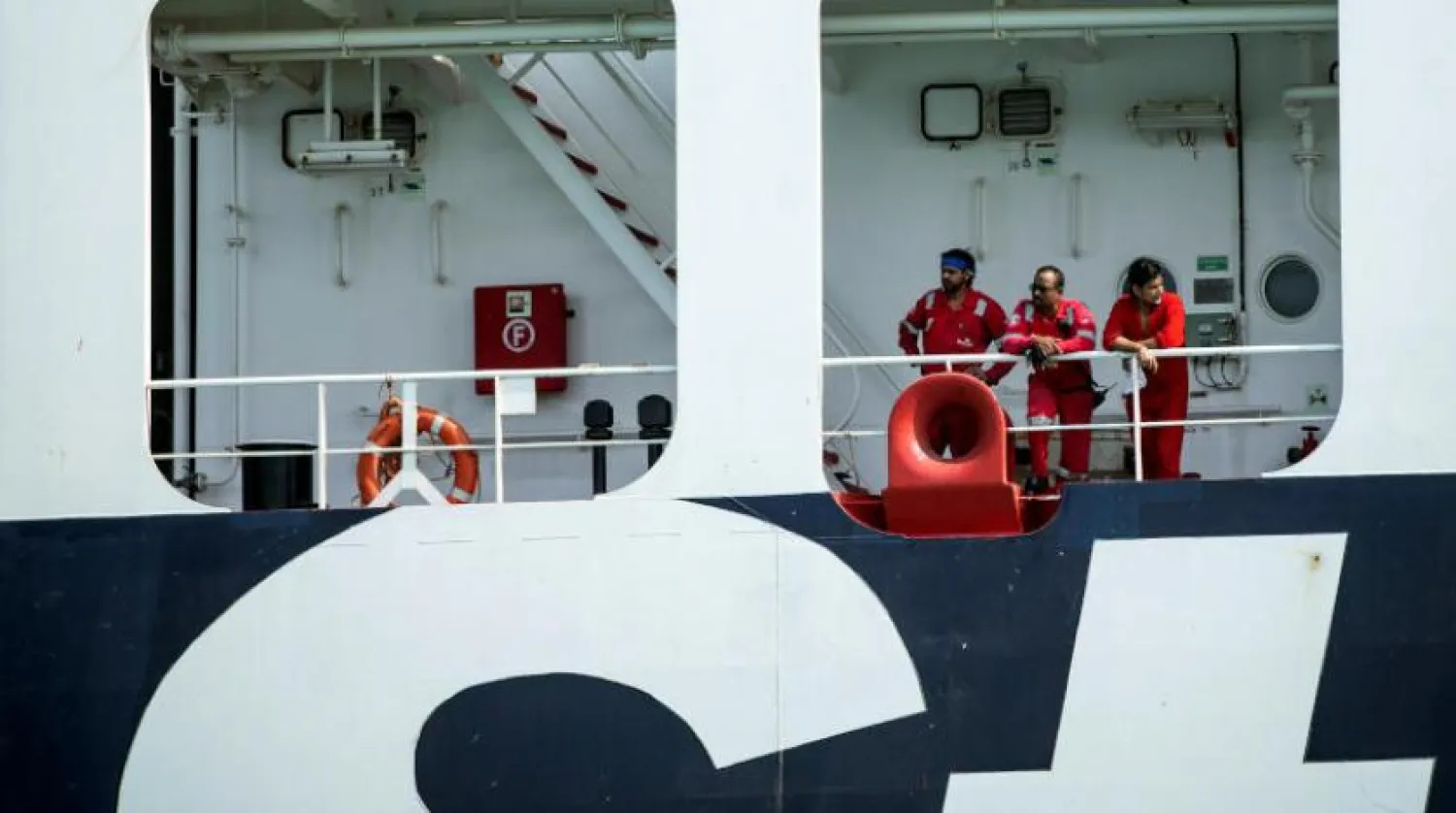Seven crew members of a Swedish-owned tanker seized by Iran in July will be released, the chief executive of Stena Bulk that owns the tanker said Wednesday.
"Seven crew members will be released according to the Iranian authorities... but we don't know when," Stena Bulk CEO Erik Hanell told AFP, adding that the company was "cautiously" awaiting official confirmation of their release date.
The British-flagged tanker has a total crew of 23 on board.
"We view this communication as a positive step on the way to the release of all the remaining crew, which has always been our primary concern and focus," Stena Bulk said in a statement sent to AFP.
Iranian Foreign Ministry spokesman Abbas Mousavi told state TV that the seven, who include Indian citizens, were allowed to leave the tanker on humanitarian grounds and could leave Iran soon.
"We have no problem with the crew and the captain and the issue is violations that the vessel committed," Mousavi said.
Iran's Revolutionary Guard Corps seized control of the Stena Impero on July 19 as it was navigating through an international passage in the middle of the Strait of Hormuz, a narrow chokepoint at the entrance of the Gulf.
The ship has since been held offshore near Iran's southern port of Bandar Abbas.
Iranian officials have given varying reasons for its seizure and continued detention, including alleged marine violations.
But Iranian authorities have denied the seizure of the Stena Impero was a tit-for-tat move after British commandos seized an Iranian oil tanker on July 4 as it passed through Gibraltar's waters, under suspicion it was breaking EU sanctions on oil deliveries to Syria.
That ship, the Adrian Darya 1 (formerly the Grace 1), was ordered released by Gibraltar on August 15.
Bob Sanguinetti, chief executive of the UK Chamber of Shipping trade association, said Wednesday Iran had to immediately release the remaining mariners once the seven crew of the Stena Impero had been freed.
"The ship was in international waters when it was detained and was in full compliance with all navigation and international regulations," Sanguinetti said.









